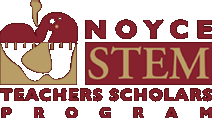
The Program
Mississippi State University (MSU), the premiere university in Mississippi, has taken a leading role in assisting the state with the teacher shortage. The College of Education, the College of Arts and Sciences, and the Bagley College of Engineering recognize the importance of this critical problem and aim to play an active role in increasing the number of highly qualified and effective teachers available to teach in Mississippi's public school classrooms. The Noyce STEM Teachers Scholars program aims to increase the number of highly qualified and effective mathematics and science teachers prepared at MSU by offering undergraduate students majoring in chemistry, physics, biology, engineering, and mathematics and STEM professionals the opportunity to obtain certification as mathematics and science teachers for grades 7-12. This goal will be achieved through the Noyce STEM Teachers Scholars program, which has three objectives:
- To provide scholarships for juniors and seniors who are majoring in chemistry, physics, biology, engineering, and mathematics who have demonstrated an interest in obtaining teacher certification;
- To provide stipends for STEM professionals who have an interest in becoming certified teachers; and
- To provide resources and support that will contribute to teacher retention.
The students who participate in the Noyce STEM Teachers Scholars program will receive financial support to pursue a double major in the STEM content area and teacher education. A double major in chemistry, biology, physics, mathematics, or engineering and mathematics or science education will equip graduates with strong content knowledge and pedagogical knowledge and skills necessary to become highly qualified and effective teachers.
The Mathematics Education curriculum consists of 12 mathematics courses (beginning with calculus I) and 12 professional education courses, which includes 15 hours of teaching internship, in addition to university core requirements. The Secondary Biology, Secondary Chemistry, and Secondary Physics Education curricula (Science Education) consist of 54 hours of biology, chemistry, or physics and 12 professional education courses, which includes 15 hours of teaching internship, in addition to university core requirements. For both the Mathematics Education and the Science Education curricula, two three hours methods courses (one taken in the junior year and one take in the senior year) provide teacher education candidates with instructional methods and theoretical knowledge needed to enter the classroom as prepared teachers. Additionally, these courses address the fundamentals of math education and science education, National Science Teaching Standards and NSTA recommendations required for teaching science, and national and state standards for teaching math in secondary schools. The MAT-S program is designed to provide students with a strong knowledge base and practical understanding of science and math in secondary schools. The MAT-S degree curriculum include courses in classroom management, assessment, technology, curriculum organization, and instructional methodology, reading/writing across the curriculum, teaching exceptionalities, and a teaching internship.
Each Noyce Scholar must commit to teaching mathematics or science in a high-need school district located in Mississippi for two years for every one year of funding received. The Noyce Scholars engage in field experiences in five high-need school districts and complete their teaching internship in a high-need school district.
The term "high need local educational agency" means a local educational agency that serves an elementary or secondary school located in an area in which there is:
- A high percentage of individuals from families with incomes below the poverty line;
- A high percentage of secondary school teachers not teaching in the content area in which the teachers were trained to teach; or
- A high teacher turnover rate.






